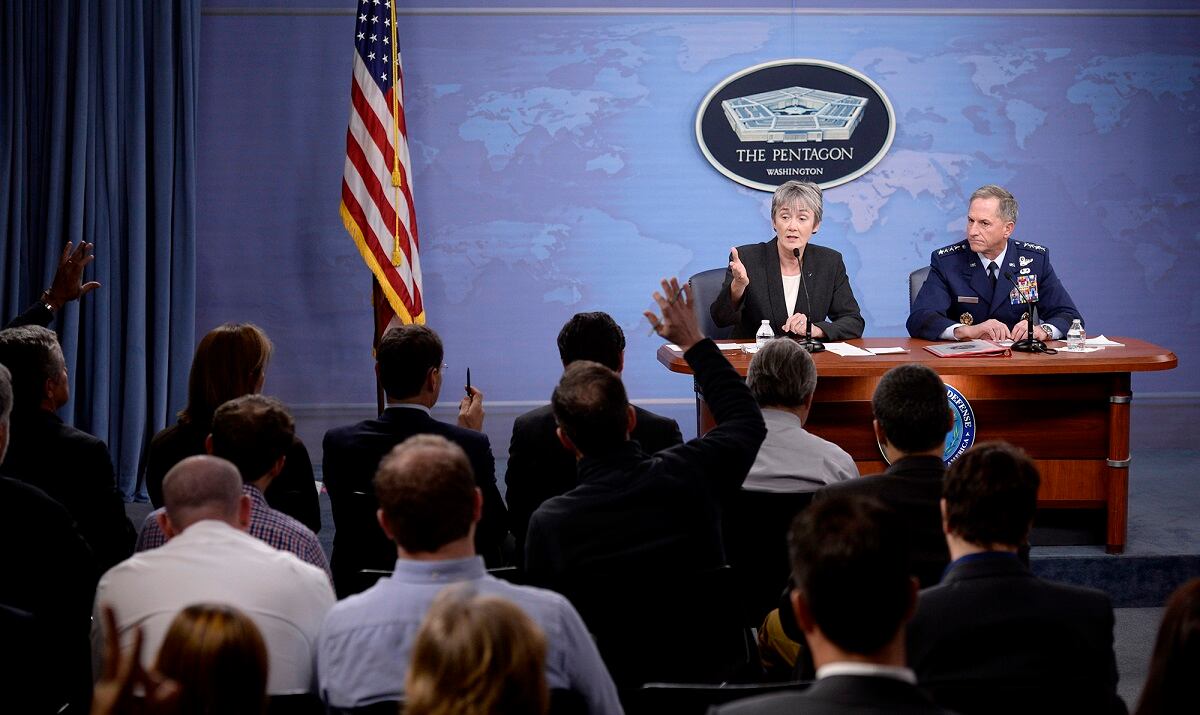To retain talented airmen, the Air Force should make it easier for them to move from active duty to the reserves and back again, Secretary Heather Wilson said Friday.
“One of the things I do think we need to think about ... is making it easier to come and go from the service ... so it’s more part time and full time,” Wilson said during a forum at the American Enterprise Institute in Washington.
Old, legacy policies have made such moves unnecessarily difficult, she noted.
More seamless transitions, back and forth, would allow “people to manage their careers and their lives better,” Wilson said.
If, for example, a major’s parent is ailing, and deploying would present a hardship, the service should find a way to let the officer “deal with that and then come back in at a later point,” she said.
“We should make that easier,” she said. “It gives flexibility to people to manage their lives and their careers, and allows us to keep talent.”
Readiness struggles
Wilson said that the Air Force is still struggling to recover from the mandatory budget cuts required by sequestration.
When the United States fought the Gulf War in 1991, Wilson said, the Air Force had 134 fighter squadrons. Today, that number has plunged to 56, even though the demand for air power hasn’t declined.
Sequestration alone cost the Air Force 10 squadrons and 30,000 people, she said, even though demand for intelligence, surveillance and reconnaissance sharply increased.
“That’s a huge change that the Air Force was put through as a result of sequester, and a significant drop in the Air Force budget,” Wilson said. “I think that sequester has done more to damage the Air Force than anything our adversaries have done” in recent years.
RELATED

The public’s right to know
Wilson defended the Air Force’s controversial decision to limit the amount of information released to the public, saying it was necessary for operational security.
“We try to be very open with the American people about what we’re doing and why,” Wilson said. “But we also have to understand that our adversaries are also reading the public press, and we don’t want to tell them things which could compromise an operation, or compromise our ability to conduct future operations.”
She also said the military’s erroneous statements that the extended range version of the Joint Air-to-Surface Standoff Missile had been used in last week’s Syria strike, and that F-22 Raptors had not been involved, should not be held against officials.
“I think maybe we should cut people a little bit of slack,” Wilson said. “They are trying to get information out about an operation that happened the night before, on a Saturday morning, and taking questions from 100 different directions about operational details. I think they did a pretty good job. And if you get something wrong on a question, like the version of a particular missile or those kind of things, they just correct the record. It’s not that big a deal.”
Watch Wilson’s speech here.
Stephen Losey is the air warfare reporter for Defense News. He previously covered leadership and personnel issues at Air Force Times, and the Pentagon, special operations and air warfare at Military.com. He has traveled to the Middle East to cover U.S. Air Force operations.




